by Laaleen Sukhera
“I MAY have been educated in Pakistan and USA, but my head’s always been buried in well-loved British classics. Even my Netflix queue tends to vary from Poldark to Bridget Jones’s Baby and everything in between. Austenistan, (my fiction debut with a group of brilliant contributors), follows brown Jane Austen-esque heroines of varying ages navigating the social jungles of Lahore, Karachi and Islamabad, with the will to make their own choices, modern and relatable, yet echoing Regency era social conventions. Bloomsbury is set to publish our anthology in Britain this May. Here are the tremendous 10 to whom this Austenistani owes a great deal,” said Laaleen.
The greatest novelist: I’ve adored Jane Austen since I first read Pride and Prejudice at 12. Lizzie Bennet channels humour in the best possible way, something that resonates at the darkest of times: “Follies and nonsense, whims and inconsistencies do divert me, I own, and I laugh at them whenever I can.” Austen’s even influenced my masculine ideal, though I admit that I didn’t actually start fawning over Fitzwilliam Darcy until Colin Firth’s dishy depiction. From an honours thesis at university to the Jane Austen Society of Pakistan to Austenistan, Jane has inspired me a great deal over the years and she probably always will.
A magical childhood: With the exception of her racist depictions of golliwogs, Enid Blyton greatly fuelled my imagination as a child. Whether it was Mallory Towers, The Faraway Tree or The Five Find-Outers, her pages enticed me to an obsessive level of reading at the table, in the car, and even at some lacklustre birthday parties.
A family who reads together: I was fortunate enough to grow up with an early appreciation for fiction and the joy of writing. I owe this to my dad Sarwar Sukhera, publisher and Benazir Bhutto’s first press secretary. He encouraged written expression, while my sister Mahlia Lone, the writer of The Fabulous Banker Boys in Austenistan, always had the most exciting array of books that I devoured growing up.
The queen of crime: I discovered Agatha Christie at 10 and my fascination for her plots has never ended. By the time I turned 12, I’d read 76 of her books, with a marked preference for Hercule Poirot and his OCD genius, followed by Miss Marple’s detections in idyllic St Mary Mead and Tommy and Tuppence’s many capers.
The riveting Regency: My sister and I discovered Georgette Heyer when I was 13. Not only did Heyer portray the glamour of the Regency era with her unique brand of lingo and endearing fictional characters (spirited ladies, dashing Corinthians and rakes), but also interspersed her stories with glittering, eccentric, actual personages. These included Prinny (the Prince Regent, later George IV), Beau Brummel, Lady Sarah Jersey, Golden Ball (Lord Alvanley). And she depicted happening haunts like Almack’s, Gunter’s, White’s and Vauxhall Gardens.
High-spirited historians: From Amanda Foreman’s Georgiana: The Duchess of Devonshire to Stella Tillyard’s Aristocrats and William Dalrymple’s White Mughals, there’s nothing like meticulous research, captivating archives and mind-bogglingly detailed histories that bring favourite eras and fascinating characters to life centuries later.
Commercial fiction: Helen Fielding’s bumbling, boisterous Bridget Jones is the bestie we all want and whom we’ll always root for. Whether you call it popular fiction or demean it as ‘chick lit’, it’s fun, fabulous and here to stay.
Edwardians & Flappers: Characters I’ve turned to during childhood and adulthood to suit every mood include whimsical Wodehousian man-about-town Bertie Wooster and his unfailing propensity for entanglement while singing awful show tunes (pure applesauce for the soul). Then there’s the wistful romance of EM Forster’s sublime A Room With A View, complete with Lucy Honeychurch’s coming-of-age snog in a field of lavender in Tuscany, no less.
Victorian refinement: From irresistibly heated Brontërific exchanges on Yorkshire moors to restrained Whartonesque romance across the pond in Wharton’s Old New York ballrooms, corseted Victorian fiction has a lasting appeal of its own.
Screen adaptations: Whether it’s Austen, Dickens, Eliot, Gaskell, Thackeray or Tolstoy, screenwriters like Andrew Davies have a knack for adapting enduring fiction into compelling period dramas and creating a visual world of sensory and aesthetic splendour. Sigh!
- Laaleen Sukhera is the editor and contributor of Austenistan, forthcoming from Bloomsbury Publishing UK in May 2018. Visit www. Laaleen.com and follow her on Twitter: @ laaleen & Instagram: @laaleen_official





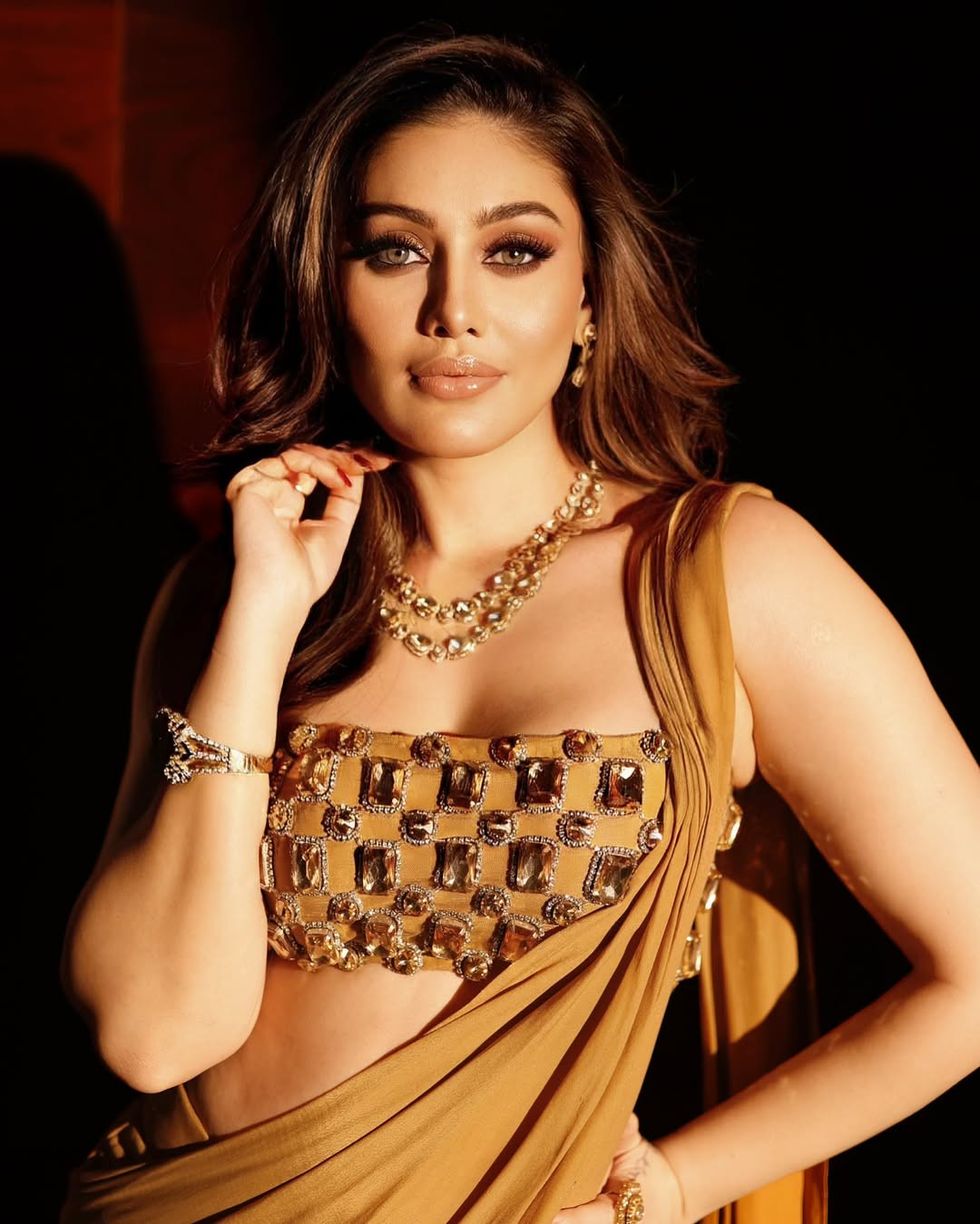 Shefali Jariwala dies at 42 after cardiac arrest, industry mourns Kaanta Laga starInstagram/
Shefali Jariwala dies at 42 after cardiac arrest, industry mourns Kaanta Laga starInstagram/ Shefali Jariwala was married to actor Parag Tyagi,Instagram/
Shefali Jariwala was married to actor Parag Tyagi,Instagram/








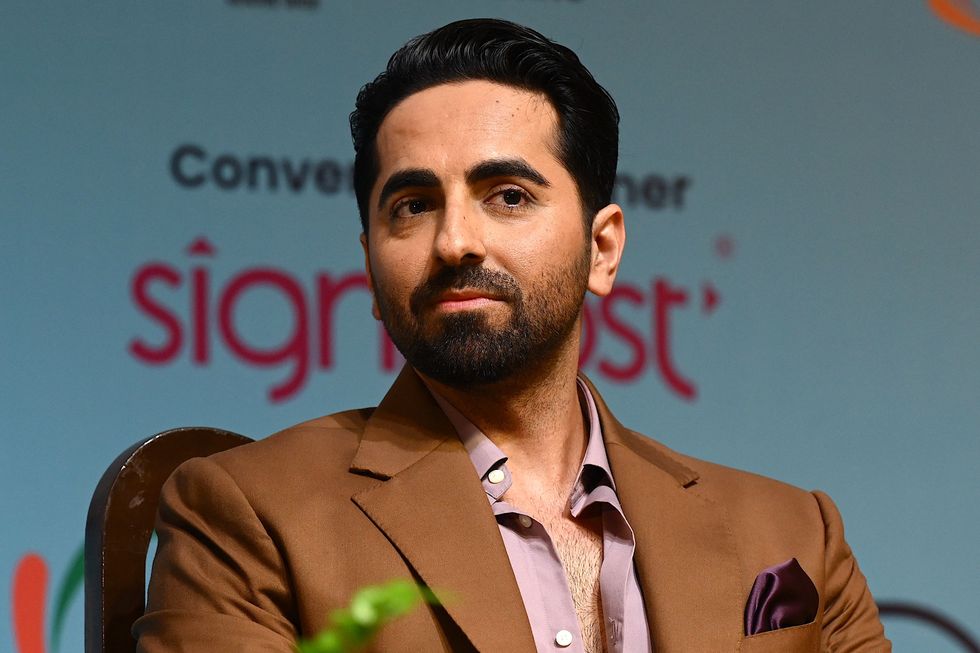 Ayushmann Khurrana attends an event at the FICCI Frames 2024 Getty Images
Ayushmann Khurrana attends an event at the FICCI Frames 2024 Getty Images Kamal Haasan waves as he attends a press conference for 'Thug Life'Getty Images
Kamal Haasan waves as he attends a press conference for 'Thug Life'Getty Images Payal Kapadia smiles during the Jury photocall at the 78th annual Cannes Film FestivalGetty Images
Payal Kapadia smiles during the Jury photocall at the 78th annual Cannes Film FestivalGetty Images
 Prabhas in a still from Kalki 2898 AD which completed one yeargetty images
Prabhas in a still from Kalki 2898 AD which completed one yeargetty images Kalki 2898 AD became one of the top three biggest openers in Indian cinemagetty images
Kalki 2898 AD became one of the top three biggest openers in Indian cinemagetty images Kalki 2898 AD brought together sci-fi and mythology in a first-of-its-kind Indian filmgetty images
Kalki 2898 AD brought together sci-fi and mythology in a first-of-its-kind Indian filmgetty images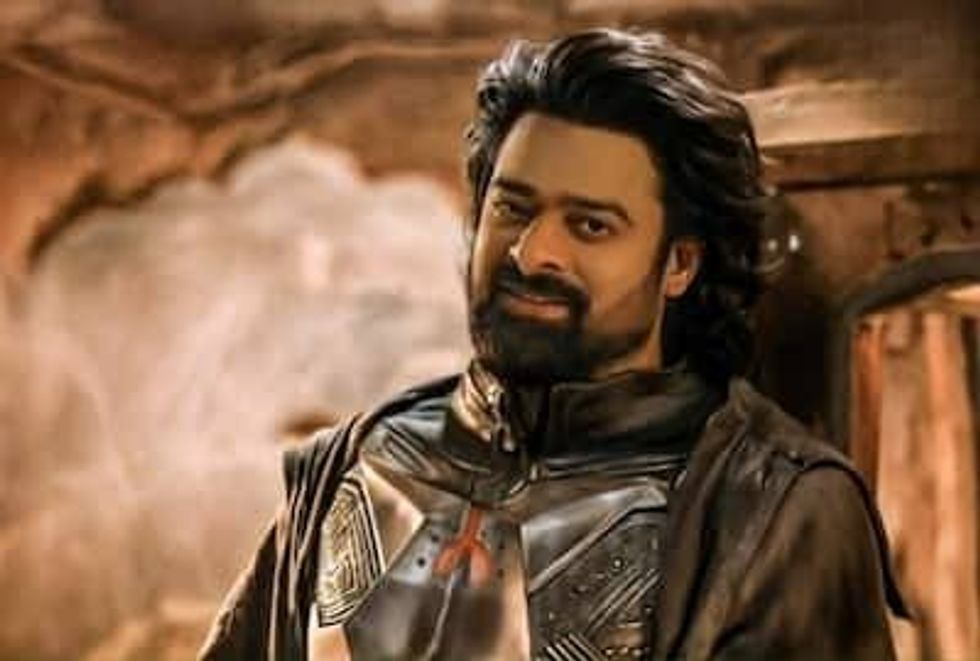 Prabhas plays the futuristic warrior Bhairava in Kalki 2898 AD getty images
Prabhas plays the futuristic warrior Bhairava in Kalki 2898 AD getty images Prabhas in action during a high-intensity sequence from Kalki 2898 ADgetty images
Prabhas in action during a high-intensity sequence from Kalki 2898 ADgetty images
 Anusha Mani
Anusha Mani
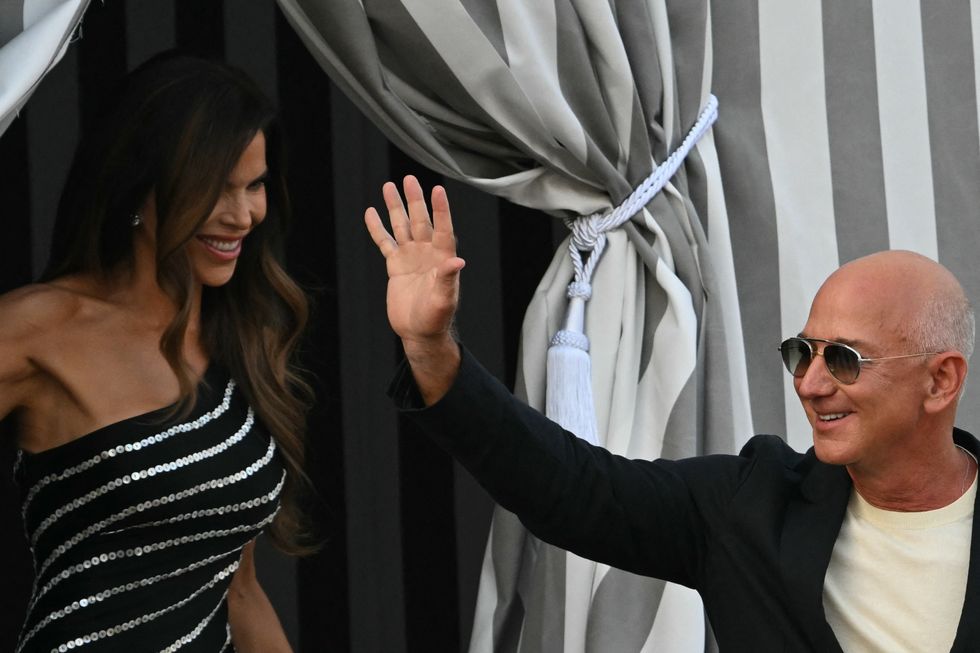 Lauren Sanchez and Jeff Bezos leave the Aman Hotel in Venice ahead of their wedding Getty Images
Lauren Sanchez and Jeff Bezos leave the Aman Hotel in Venice ahead of their wedding Getty Images 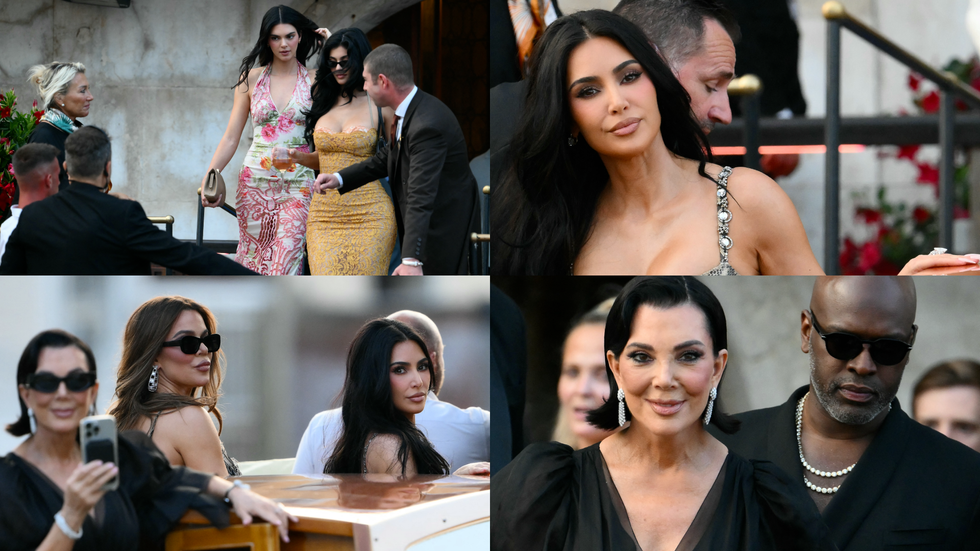 Kardashians seen boarding a boat ahead of the evening celebrations in VeniceGetty Images
Kardashians seen boarding a boat ahead of the evening celebrations in VeniceGetty Images 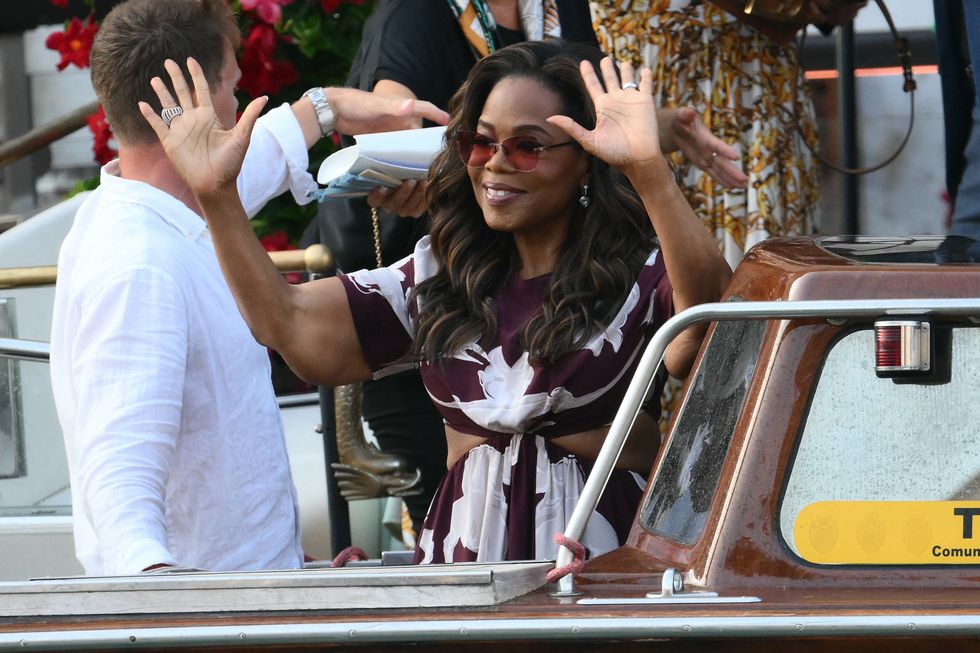 Oprah Winfrey wave to fans while heading to the welcome event Getty Images
Oprah Winfrey wave to fans while heading to the welcome event Getty Images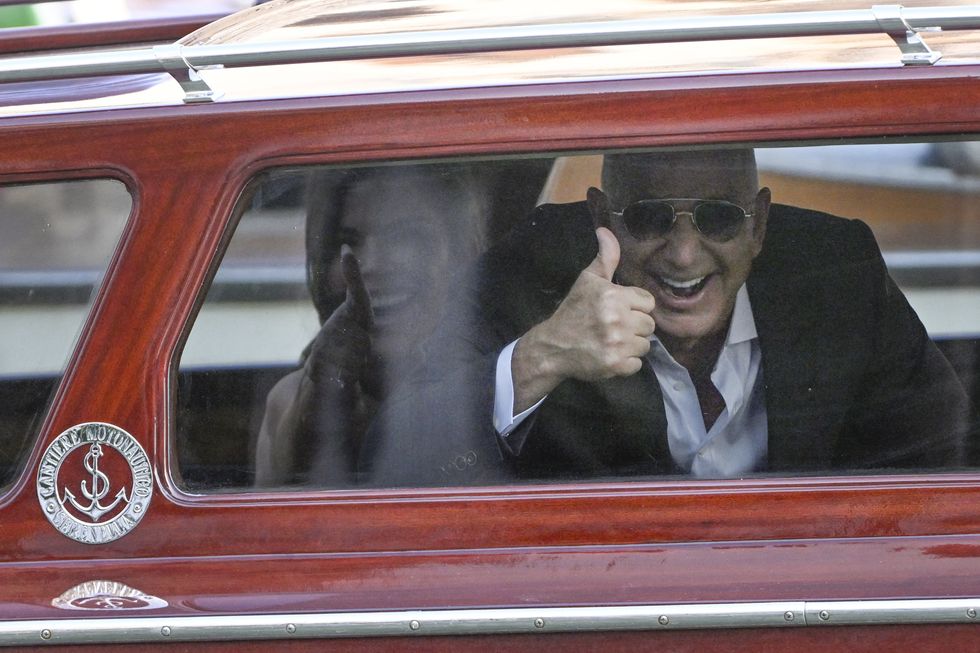 Jeff Bezos and Lauren Sanchez gesture in direction of Bezos' lookalike from the taxi boatGetty Images
Jeff Bezos and Lauren Sanchez gesture in direction of Bezos' lookalike from the taxi boatGetty Images